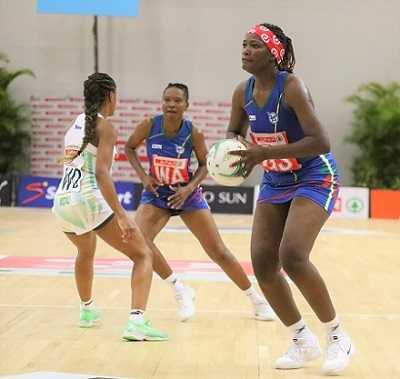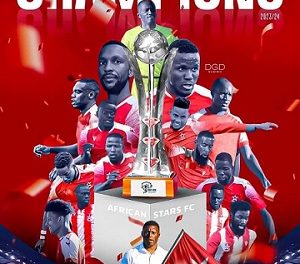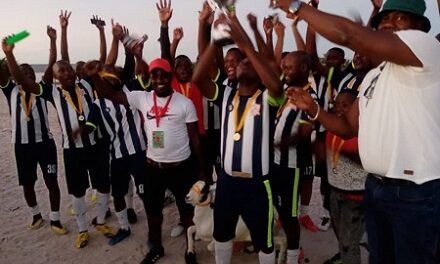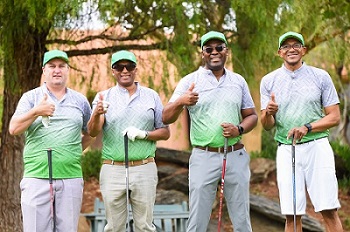
By Victor Angula|
Namibia has for the last two weeks been host to some of the top netball players of the African continent as the Debmarine Netball Pent Series held in Windhoek run into the Netball Africa Cup which took place in Windhoek from 9 to 16 November 2021.
The Netball Pent Series competition was won by Uganda who beat Namibia in the final game. While the Netball Africa Cup was won by South Africa who beat Uganda in the final game.
Yet apart from lukewarm coverage by the media, hardly the netball events received any attention on social media platforms. This gets to show how netball has been losing popularity and getting dwarfed by women soccer and even by women rugby which has seen dramatic growth over the years.
However Chief Public Relations Officer in the Ministry of Sport, Youth and National Service Ms Aina Shikesho does not agree with any analysis pointing to the fact that netball has been wrestled to the ground by women soccer.
In response to email questions sent to Shikesho, she responded as follows:
Question: Back in the past netball used to be the sport code associated with women, while soccer was for men. But during the course of years, netball got to be overtaken by women soccer. Can you explain how and why this happened?
Aina Shikesho: As you should know back in the past Namibian society was organized as per the apartheid doctrine, which apportioned different roles to all. This doctrine also apportioned different roles for men and women. Therefore, although soccer was for men, it did not mean that women were not interested in football, only that the existing laws prohibited them from participating.
With the advent of independence and the accompanying freedom of choice, women could now freely participate in football. As to whether netball was overtaken by soccer this is only your opinion; a lot of women/girls still participate in netball.
Question: In all practicality, soccer is a masculine sport. Even women soccer is dominated by muscular women footballers; on the other hand, netball is a feminine sport. How did it happen that a sport code of masculinity would crawl into the domain of feminine people and thrive while the traditional feminine sport code goes down?
Shikesho: As a journalist, you should know that society has evolved and no longer embrace the debunked archaic concepts of masculinity and femininity. Also, please note that society has evolved in its description and appreciation of masculinity and femininity. Like the rest of society, sport is now open to all to make their own choices and participate in whatever suits them.
Therefore, your statement that soccer is a masculine sport is simply a fallacy, attesting to your own opinion of society. Namibia is a free society where its citizens are free to make their own choices. Netball is still as popular as before, only that now women/girls are free to choose to participate in other sports codes.
Question: The Ministry of Sport is headed by a woman Minister, yet the original women sport codes like netball could not receive prominent attention. Why so?
Shikesho: We perceived netball to be a prominent sport; hence, it is classified as a national sports code together with soccer and rugby. Netball in Namibia is receiving prominent attention, as exemplified by the hosting of two international tournaments, namely, the Debmarine Pent Series and the African Netball Championship which are sanctioned by the World Netball.
Question: If the Brave Gladiators is Namibia’s women national soccer team, what is Namibia’s national netball team called?
Shikesho: They are called the Desert Jewels.
Question: Aside from Covid-19 related complications, what has the Ministry done in support of netball in the recent past?
Shikesho: Just like for all other national teams, the Ministry is responsible for ensuring international participation. From the underage teams which have been participating in regional competitions to the senior national team, the Ministry has been the main financier of this participation.
Regarding the tournament currently taking place in Namibia, the Ministry is assisting with personnel and transport.
In the photo: Namibia’s netball stars remain buried in the desert, like desert jewels, as they receive little media attention and less public interest.







